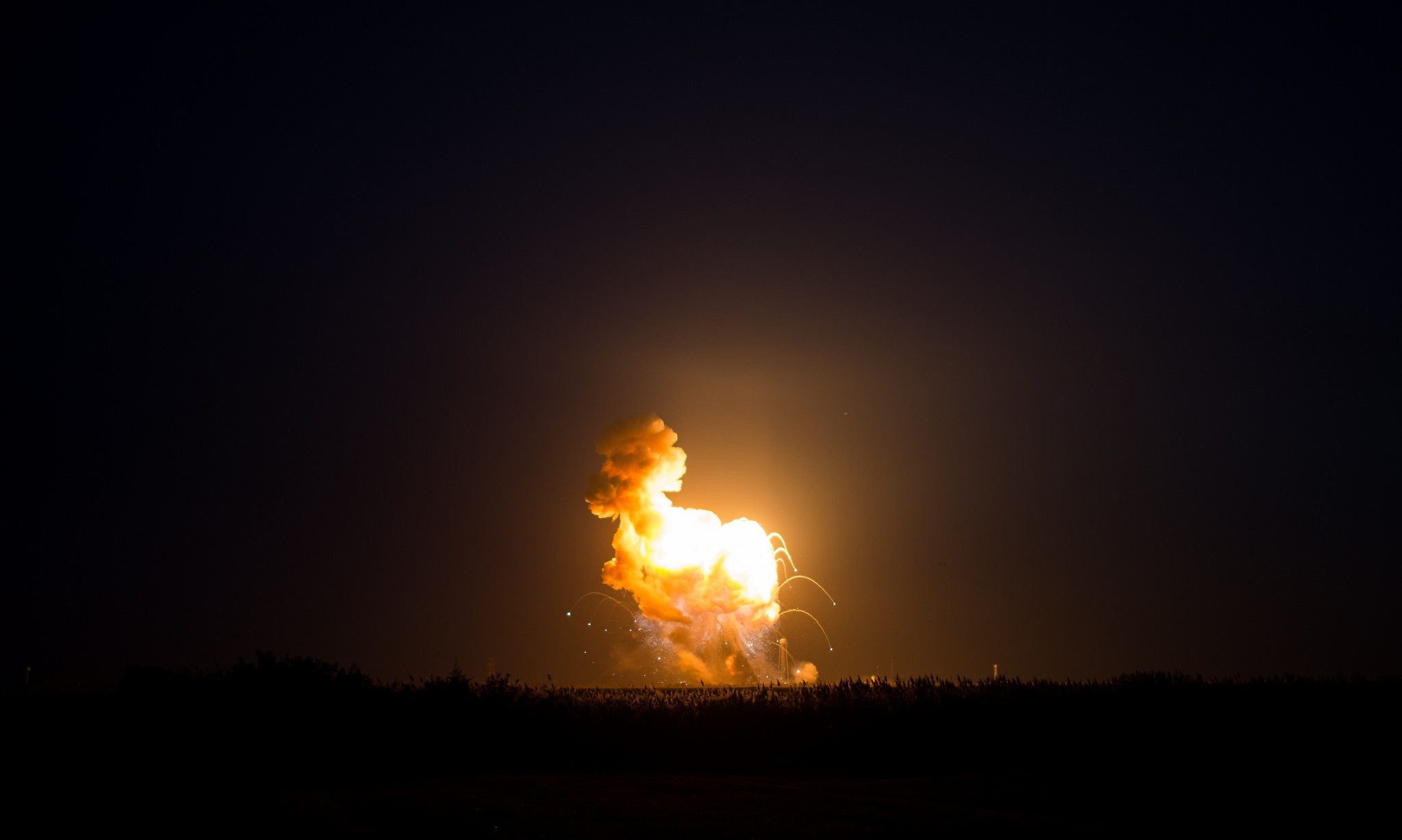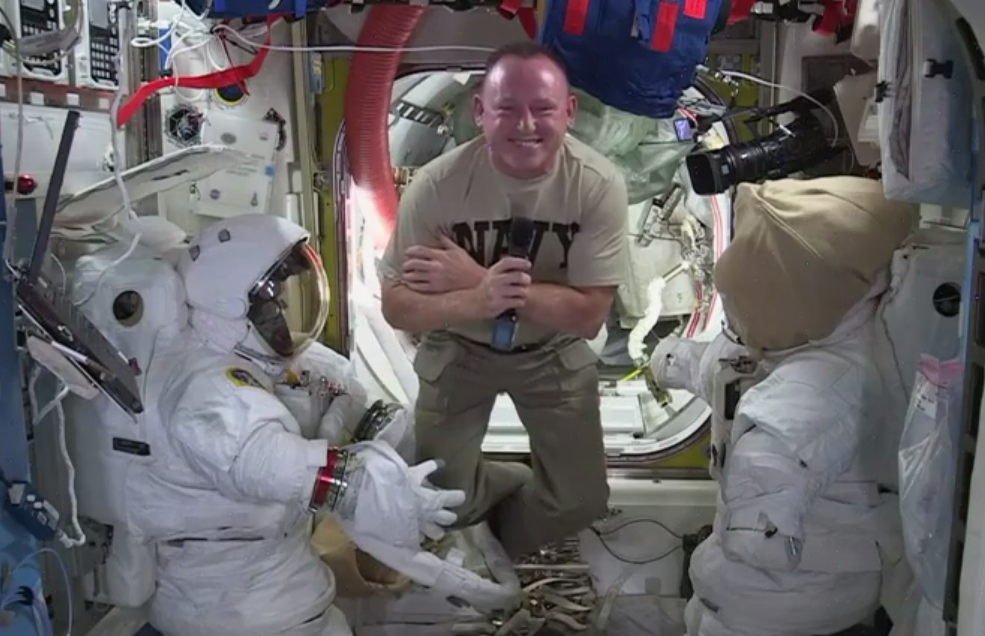Antares Rocket Explosion: Space Station Astronauts React

Astronauts on the International Space Station watched as a private rocket carrying supplies for the orbiting outpost exploded just after launch.
NASA's Reid Wiseman and Barry "Butch" Wilmore and European Space Agency astronaut Alexander Gerst sent down some of their thoughts about the Oct. 28 explosion of Orbital Sciences Corp.'s Antares rocket carrying the company's Cygnus spacecraft. The unmanned Cygnus probe was expected to deliver a batch of fresh supplies to the space station crewmembers.
"Last night we were watching it live, NASA uplinked the launch live," Wilmore said during an interview with WCYB TV today (Oct. 29). "We were watching it when it occurred. Of course, it's a very somber time because we've got a lot of friends that work with Orbital. It's a great loss when you lose a vehicle like that." [Read more coverage of the Antares rocket explosion]
The six crewmembers currently on the space station are not in any danger of running out of supplies, NASA officials have said. A robotic Russian Progress vehicle docked to the space station earlier today (Oct. 29) after a planned launch from Kazakhstan less than 24 hours after the Antares failure.
While Gerst seems disappointed about the Antares explosion, he also expressed his support for the program via Twitter.
"Sorry to hear of #Orb3," Gerst wrote in an update on Twitter. "Setbacks happen on the forefront of #tech. #ISS [International Space Station] programme remains strong, we'll keep exploring. Glad no one is hurt."

Wiseman's contribution (also via Twitter) was short and to the point.
Get the Space.com Newsletter
Breaking space news, the latest updates on rocket launches, skywatching events and more!
"Not every day is easy. Yesterday was a tough one," Wiseman wrote, including a picture of an orbital sunrise in his Twitter post.
Orbital Sciences is now leading an investigation into why the Antares rocket failed. If this launch had gone as planned, it would have kicked off Orbital's third official cargo run to the space station under a $1.9 billion contract with NASA for eight missions to the orbiting outpost.
The International Space Station is currently the home of six crewmembers. Wilmore, Gerst and Wiseman are joined by cosmonauts Elena Serova, Max Suraev and Alexander Samokutyaev as part of the Expedition 41 crew.
Editor's Note: NASA officials are urging residents of the area around the launch site to keep away from any rocket debris that might wash up on shore or be found on land. If you think you may have found pieces of the rocket, please call the incident response team at (757) 824-1295.
Follow Miriam Kramer @mirikramer and Google+. Follow us @Spacedotcom, Facebookand Google+. Original article on Space.com.
Join our Space Forums to keep talking space on the latest missions, night sky and more! And if you have a news tip, correction or comment, let us know at: community@space.com.

Miriam Kramer joined Space.com as a Staff Writer in December 2012. Since then, she has floated in weightlessness on a zero-gravity flight, felt the pull of 4-Gs in a trainer aircraft and watched rockets soar into space from Florida and Virginia. She also served as Space.com's lead space entertainment reporter, and enjoys all aspects of space news, astronomy and commercial spaceflight. Miriam has also presented space stories during live interviews with Fox News and other TV and radio outlets. She originally hails from Knoxville, Tennessee where she and her family would take trips to dark spots on the outskirts of town to watch meteor showers every year. She loves to travel and one day hopes to see the northern lights in person. Miriam is currently a space reporter with Axios, writing the Axios Space newsletter. You can follow Miriam on Twitter.









